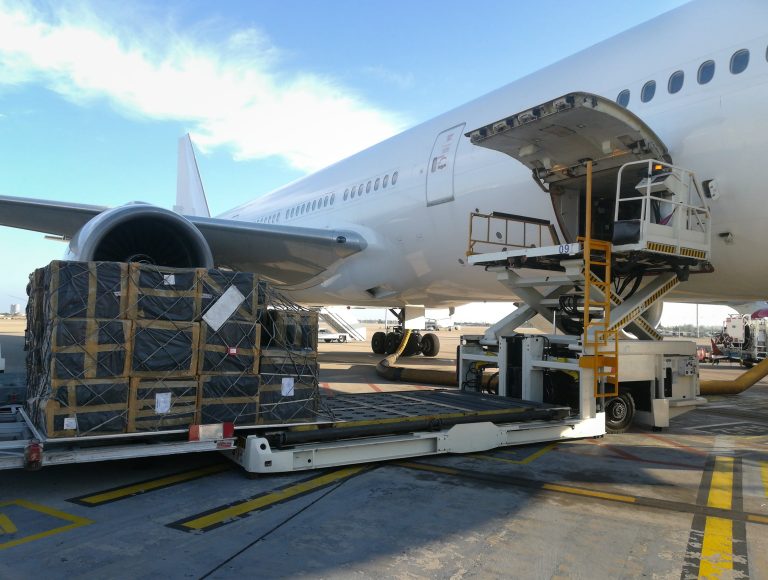Air freight shipping is a type of transportation that involves the movement of goods by air, typically using planes. It is a fast and efficient way to move goods long distances, particularly for time-sensitive or high-value items, and is a vital part of the global logistics network.

Speed is the most obvious benefit of air freight shipping (most commercial airliners cruising speed ranges between 550 and 600 mph) but there are a few other items that come into play:
1. Door-To-Door Service
Many air freight carriers offer door-to-door service, which means that the cargo is picked up at the sender’s location and delivered directly to the recipient’s location.
2. Flexibility
Air freight can be easily routed to different destinations, and it is suitable for transporting a wide range of goods, including perishable items, hazardous materials, and high-value products.
3. Security
Air freight is generally considered to be the most secure form of transportation, as cargo is handled less and is less likely to be damaged or lost.
4. Reliability
Air freight is a reliable transportation option, with a high on-time delivery rate.
Overall, the biggest benefit of air freight is its speed and efficiency, which makes it an ideal choice for time-sensitive shipments and high-value goods.
How Can Air Freight Shipping Be Further Broken Down?
Air freight shipping is a service that allows individuals or businesses to send packages and other cargo by airplane, rather than by ground transportation or ship. Although R2 Logistics would take care of all of this for a shipper, here is a general outline of what the process would look like:
1. Determine the Size, Weight, and Destination of the Package
This will help you determine which air freight carrier to use and what shipping options are available.
2. Choose An Air Freight Carrier
Many companies offer air freight shipping services, so you’ll want to compare prices and services to find the best option for your needs.
3. Prepare Package for Shipping
This will typically involve packing the items in a sturdy container and attaching any necessary labels or documents, such as a commercial invoice or shipping manifest.
4. Deliver the Package to the Air Freight Carrier
You can usually drop off your package at a local airport or at a shipping facility. Alternatively, the carrier may be able to pick up the package from your location.
5. Track Your Package
Most air freight carriers offer tracking services, so you can check the status of your package online or by phone.
6. Pay For the Shipping
You will typically be required to pay for the air freight shipping services at the time of delivery or pickup.
What Are Some Challenges of Air Freight?
However, there are also some challenges and limitations to air freight shipping. One of the main limitations is the cost, as air freight shipping is generally more expensive than other modes of transportation due to the higher fuel and operating costs of planes. This can make it less suitable for larger and heavier items, or for lower-value goods that may not justify the higher cost.

Another challenge is the environmental impact of air freight shipping. Air travel is a significant contributor to greenhouse gas emissions, and there is growing pressure to reduce the carbon footprint of the logistics industry. Some companies are implementing sustainability initiatives, such as offsetting their carbon emissions or using more fuel-efficient planes, to mitigate the environmental impact of air freight shipping.
In terms of logistics, air freight shipping plays a crucial role in the global supply chain. It is often used as a complement to other modes of transportation, such as ocean freight or ground shipping, and can be an important link in the chain for moving goods from one part of the world to another. Air freight shipping companies typically work closely with other logistics service providers, such as freight forwarders, customs brokers, and warehousing companies, to provide a seamless and integrated service to their customers.
Overall, air freight shipping is a vital part of the global logistics network and offers a fast, flexible, and reliable way to move goods around the world. While it comes with some challenges and limitations, it is an essential tool for meeting the needs of global trade and commerce.
